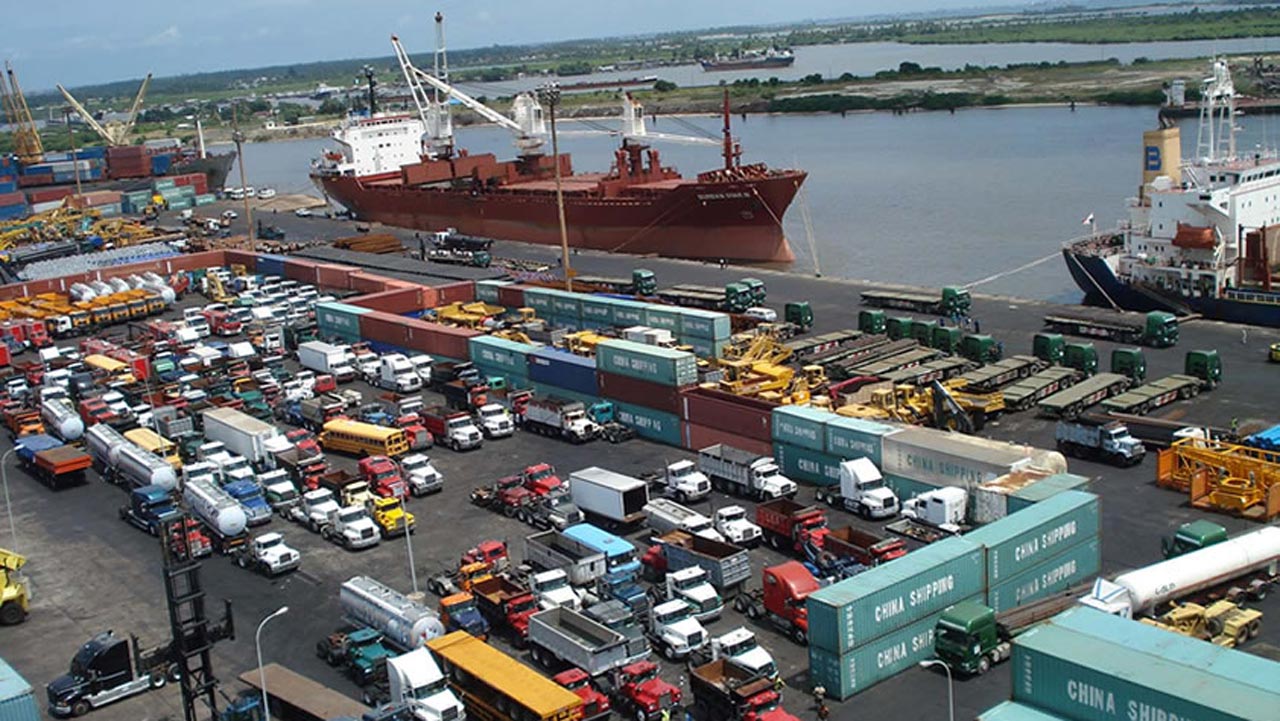
Stakeholders are calling for an urgent overhaul of port infrastructure to enhance efficiency and increase their attraction to both domestic and international trade partners.
They suggested adopting artificial intelligence (AI) in the management, extending operational hours to 24/7, investing in better equipment, reducing the multiplicity of regulations and streamlining operations to boost competitiveness.
With a coastline stretching 853 kilometers along the Atlantic Ocean, Nigeria hosts seven major seaports. Despite their strategic importance, the ports suffer from dilapidated infrastructure, prolonged cargo dwell times and extensive bureaucratic red tape, leading to significant shipment delays, inefficient systems and high operational costs.
The inefficiency and prohibitive costs at Nigeria’s ports have positioned them as the most burdensome in the West and Central African sub-region, deterring importers and encouraging the diversion of cargoes intended for Nigeria to neighboring countries with more efficient port operations.
Recalling recent developments, the Minister of Marine and Blue Economy, Adegboyega Oyetola, announced an $800 million fund for port rehabilitation.

He emphasised the government’s goal to automate and modernise the ports, align them with international standards, and significantly reduce vessel turnaround times to make Nigerian ports competitive on the international stage.
Experts argue that the root causes of inefficiency include outdated infrastructure, prolonged cargo dwell times, excessive vessel turnaround times, and a cumbersome clearing process exacerbated by a plethora of regulatory agencies, each with its bureaucratic hurdles.
Former Director-General of the Nigerian Maritime Administration and Safety Agency (NIMASA), Temisan Omatseye, emphasises the urgent need for a radical overhaul and a comprehensive audit, adopting global best practices.
He said conducting a full audit of the current port operations and infrastructure to identify inefficiencies and potential areas for improvement is crucial.
According to him, benchmarking against top global ports could offer a roadmap for modernisation.
“We must look to global best practices and need to understand how efficient ports like those in Shanghai operate and adapt their strategies within our context, employing technology such as AI to enhance operational efficiency,” Omatseye stated.
Former Executive Secretary of the Nigerian Shippers’ Council (NSC), Hassan Bello, underscored the critical need for modernising port infrastructure through the integration of digital technologies.
He emphasised that future ports and transportation infrastructures must not only be digital but also operate as non-contact, smart facilities.
Bello said this approach is pivotal not just for efficiency and facilitating smoother and faster business transactions, but also for reducing corruption, as it minimises the need for physical interactions that can often be breeding grounds for corrupt practices.
Former acting National President of the National Association of Licensed Customs Agents (ANLCA), Dr. Kayode Farinto, argued that significant upgrades in physical infrastructure and equipment are needed to handle cargo efficiently, including extending operational hours to a 24/7 system.
He cited the benefits seen in ports such as Antwerp in Belgium, Jebel Ali in Dubai, UAE, and Durban Port in South Africa, noting that the government could substantially increase revenue through the implementation of 24-hour operations.
With the over-reliance on Lagos ports leading to significant bottlenecks, Olisa Agbakoba, founder of Olisa Agbakoba Legal (OAL), highlighted inefficiencies and misalignments in the nation’s port management and development strategy and recommended a decentralised approach.
He compared the colonial era’s strategic deployment of ports tailored to specific export and import needs with current practices influenced more by political motives than by economic logic or cargo traffic demands.
Agbakoba suggested a practical approach to mitigate these issues by establishing feeder systems to redistribute containers from congested ports like Lagos to other underutilised ports, optimising cargo flow based on regional needs and helping to scale up port operations more effectively across the country.
The Deputy National President of Air Logistics at the National Association of Government Approved Freight Forwarders (NAGAFF), Dr. Segun Musa, argued that addressing bureaucratic inefficiencies and corruption is key to improving port operations.
He outlined the onerous clearing process, which involves navigating through a maze of up to 15 different government agency desks, not only delaying the process but also increasing opportunities for corrupt practices.
Musa advocated for simplified procedures and a reduction in the multiplicity of agencies involved in the clearance process to truly facilitate trade.






